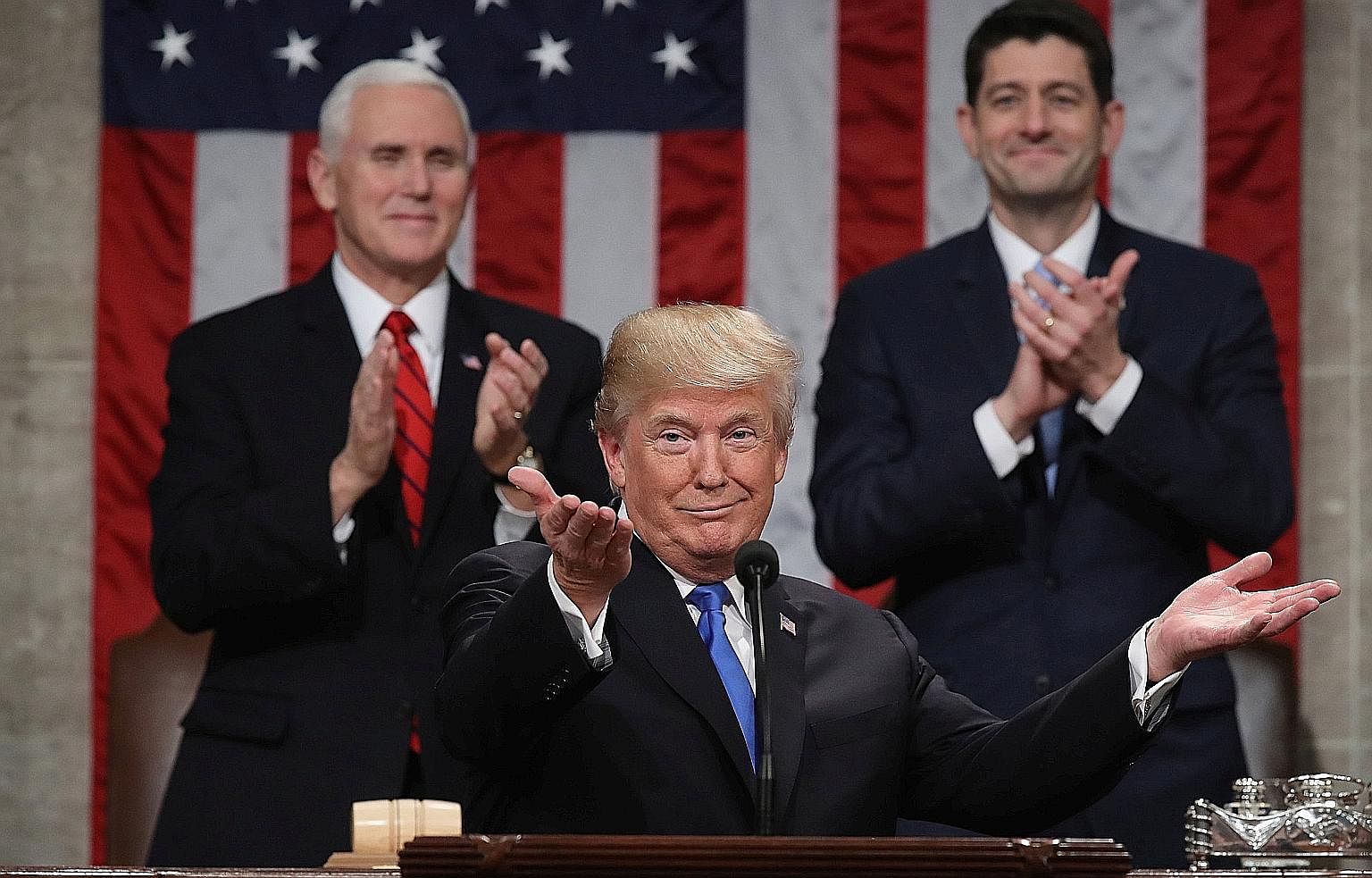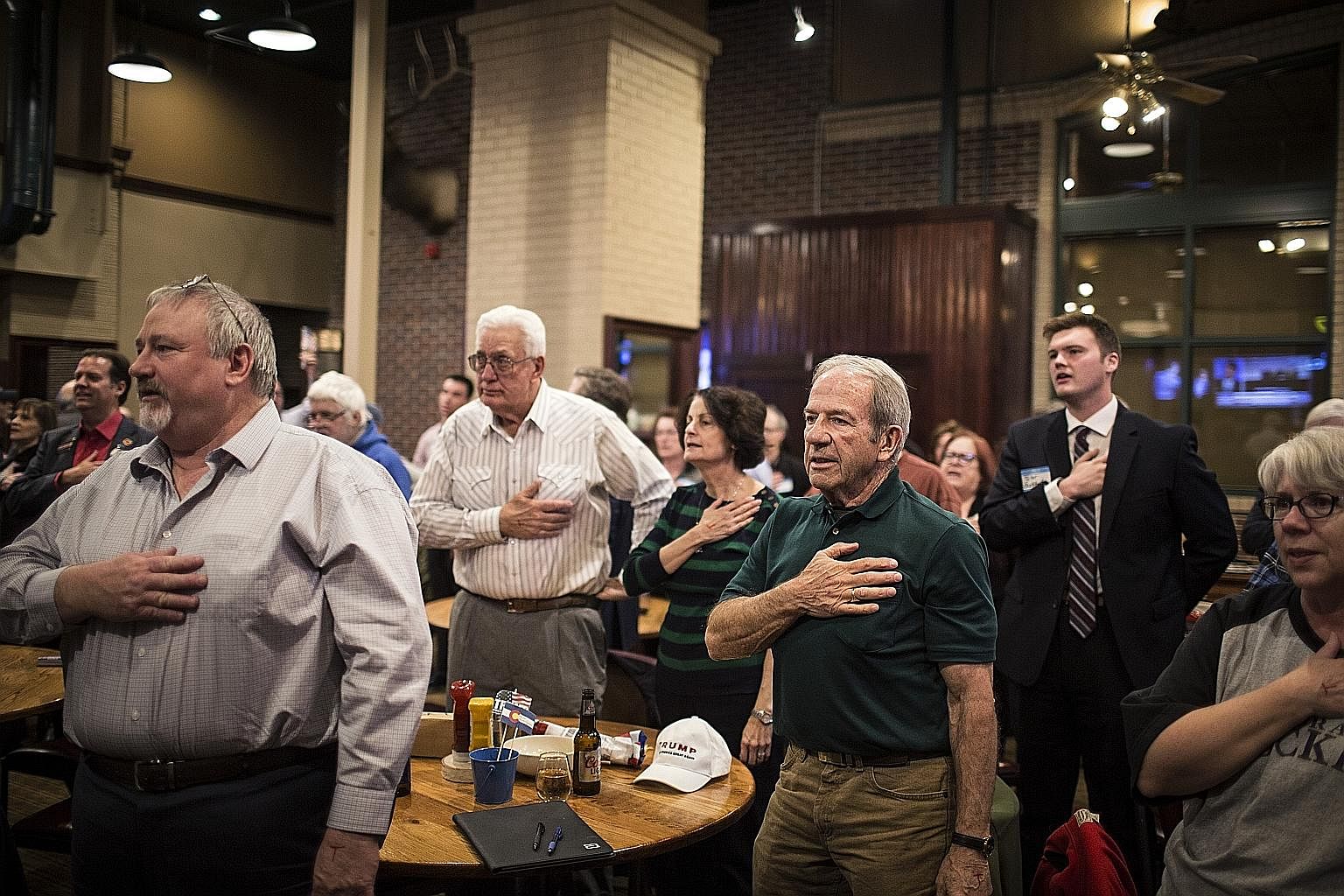Checking off a list of achievements and talking up the robust economy and low unemployment, US President Donald Trump appealed for unity and bipartisanship on key pending agenda items like immigration reform and infrastructure spending in his first State of the Union address.
It was, in many respects, a quintessentially conservative speech, aimed at his blue-collar, white middle-class and business base as well as attempting to bridge divisions with broad appeals to patriotism and the American spirit.
The rhetoric, however, is likely to dissipate quickly when it hits the rock of the country's visceral political divide, especially over emotive issues like immigration. As the President spoke of his plan to reduce immigration and appealed for support, some "boos" could be heard, and many Democrats looked expressionless or even annoyed.
Mr Trump stayed largely on script, forgoing the often controversial off-the-cuff remarks he is known for. In soaring rhetoric, he invoked a return of the American spirit. He struck emotional notes with stories of special guests invited to the occasion - from business owners to firefighters to parents who had lost their daughters to the notorious Central American MS-13 gang. The latter example was clearly playing to immigration hawks.
Going into his speech, Mr Trump's job approval rating averaged 38 per cent nationwide, said Gallup. But polls also show his Republican support has remained robust.
The speech may give him a brief boost. In a CBS poll, three in four Americans who tuned in approved of it. Just a quarter disapproved. Eight in 10 Americans who watched felt Mr Trump was trying to unite the country, rather than divide it. But viewership of State of the Union addresses is typically partisan, and the majority of the television audience would have been Republican.
Over a dozen Democratic Party lawmakers reportedly did not attend the event. The Democrats are eyeing rolling back the Republican majority in both Houses of Congress in the mid-term elections just 10 months away. The divide over legal immigration, and an ongoing crackdown on illegal immigrants, is emotional and cuts to a large part of the Democrats' base. Many of Mr Trump's critics see his plans to curb immigration as camouflaged white ethno-nationalism.

Even his US$1.5 trillion (S$1.97 trillion) infrastructure spending plan - the details of which have yet to be rolled out but which will rely on leveraging private funds - will be fiercely fought over.
"Unity speech? Get real," tweeted University of Virginia professor of politics Larry Sabato. "Trump's strategy has been clear from the start: Keep his base energised and 80-90 per cent of the (Republican Party) unified. Hope for a divisive (Democratic) contest in 2020."

Clouding the atmosphere further is the Federal Bureau of Investigation's (FBI) probe into the Trump campaign's alleged Russian connections. The President, who maintains that the probe is a witch hunt, did not mention the issue in his speech. Only a few hours before he spoke, however, FBI deputy director Andrew McCabe, who was just weeks away from retirement, resigned, sparking a media frenzy.
When the controversy over the FBI's probe returns after the respite of the State of the Union speech, partisanship will be as strong, University of Michigan director of debate Aaron Kall, the editor of a new book on State of the Union addresses, told The Straits Times.
"Politicians are playing to their own bases and donors," he said.
State of the Union addresses always focus largely on domestic issues. The speech said little about foreign policy, except to reiterate the President's hard line on trade, and to paint the outside world as a scary place, the Stimson Centre's South-east Asia Programme director Brian Eyler told ST.
"It was more inward-looking than outward," he said. "In that respect, it was a missed opportunity."

